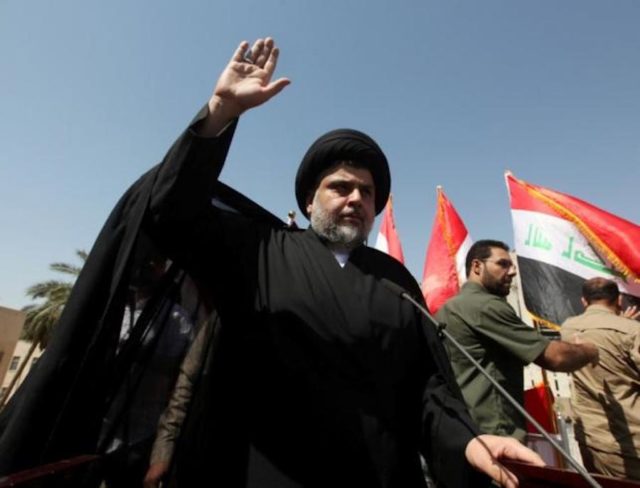
Influential Shiite Muslim cleric Muqtada al-Sadr threatened U.S. troops in an statement made July 17th, calling for his followers to target the American forces operating throughout Iraq. Al-Sadr’s declaration comes after Defense Secretary Ashton Carter announced the U.S. will deploy an additional 560 troops to help establish an airbase outside of Mosul.
Sadr’s threat highlights that the U.S. does not just face challenges from Sunni jihadists, but that Shiites paramilitary units are also set on destabilizing the region. Sadr currently controls two militias within the country: the Promised Day Brigade and the Peace Brigades. The Peace Brigades mobilized in 2014, as part of Sadr’s campaign to fight Islamic State forces throughout Iraq as government forces lost ground. Both groups are offshoots of the Sadr’s previous militia, the Mahdi Army, which fought U.S. soldiers from 2004-2008. Though he has consistently refuted claims of Iranian support, U.S. officials maintain his militant wings are backed by part of Iran’s Revolutionary Guards Corps Quds Force, according to The Long War Journal.
Other Shiite militias, backed by Iran, have declared their intention to attack U.S. troops in the region, a threat which has yet to manifest. According to Reuters, only the Islamic State is responsible for recent U.S. deaths in the region, and it remains to be seen whether Sadr intends to keep his word.
Though Sadr holds no elected position in the government, he maintains strong loyalty among his followers and is able to call thousands of his supporters to the streets, as demonstrated in the so-called Green Zone protests earlier this year. Concerned with issues of corruption and the sidelining of his political factions, Sadr’s supporters breached the heavily fortified Baghdad neighborhood in April, putting pressure on Prime Minister Haider al-Abadi to make political concessions. The protesters say they are fighting for a more technocratic government, as opposed to the current “clientelist” system. Sadr gave the government an ultimatum, claiming he would disband the government unless they approved a new cabinet. Protests restarted again in July, when officials failed to deliver on promises of reform.
Both Sadr’s forces and U.S. troops seek to free Mosul from the Islamic State’s control, but disagree on the role of sectarian Shiite militia’s in the fight. The additional deployment will bring the total number of American troops to 4,650.

